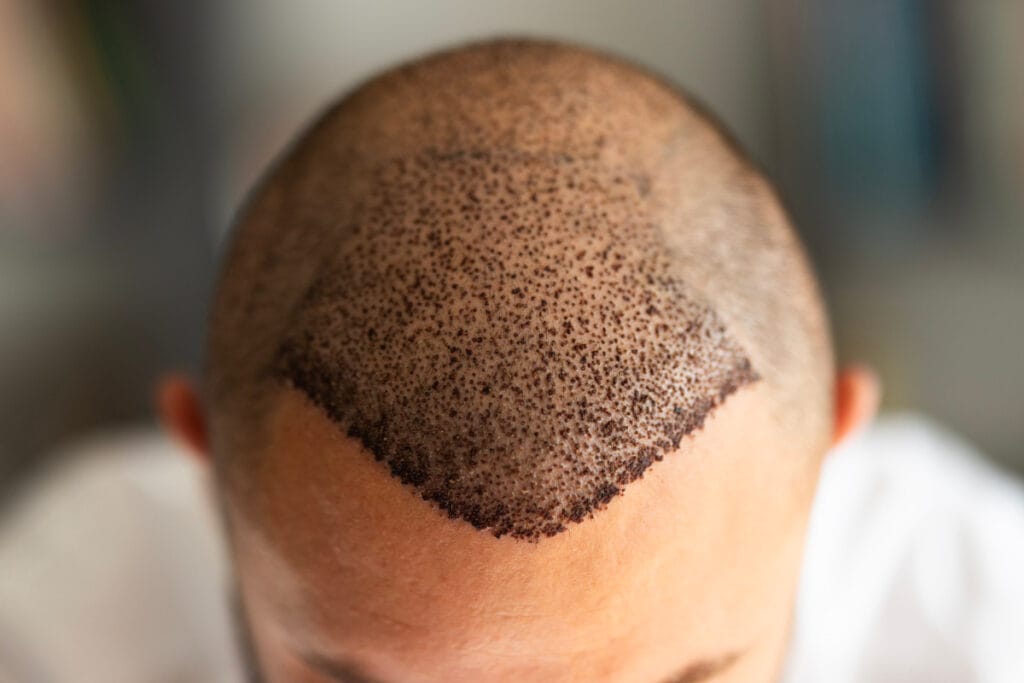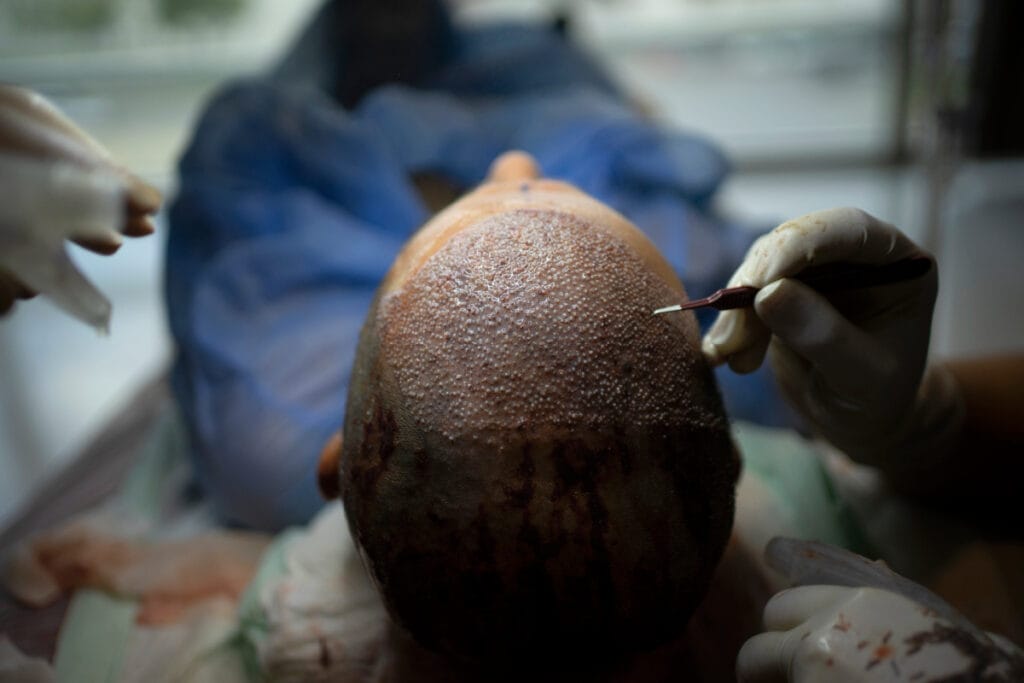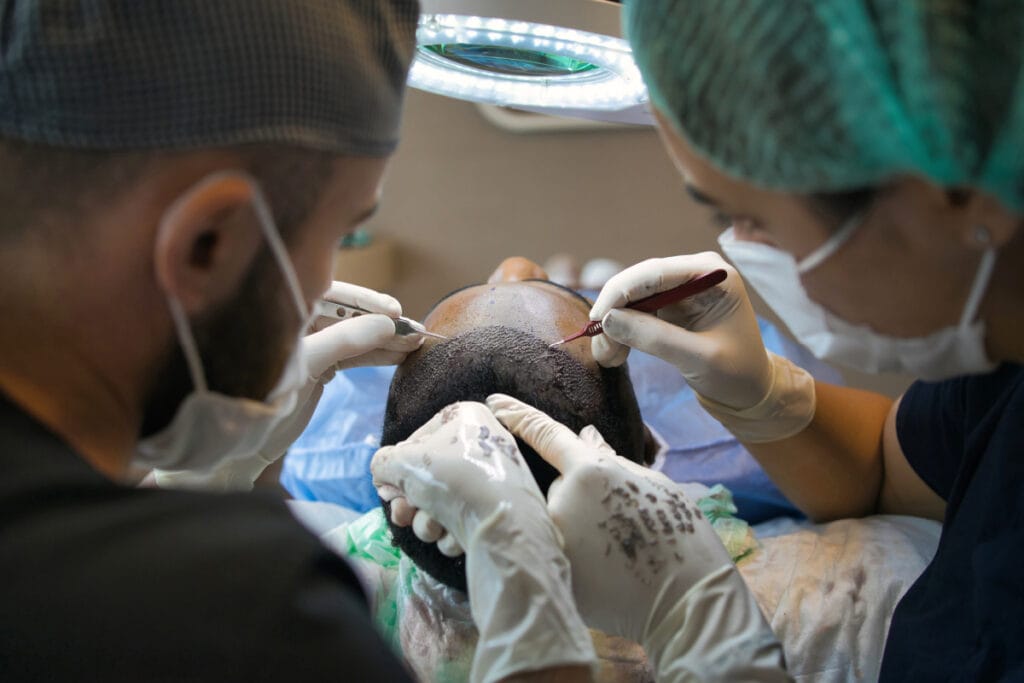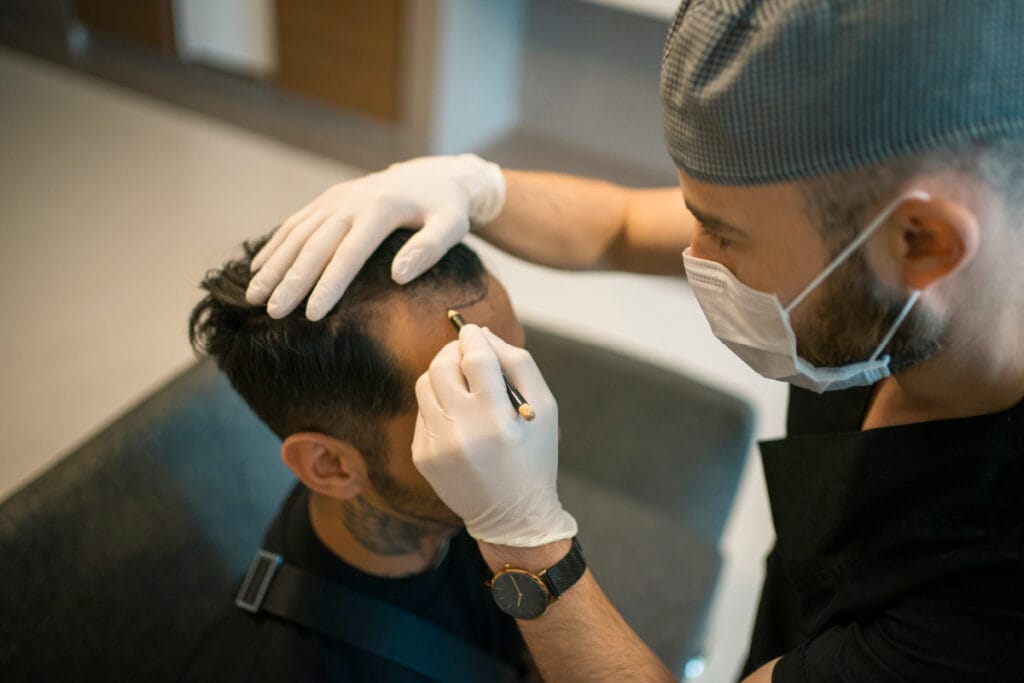Considering Hair Restoration in Turkey? Read This First
| ABCS
Turkey has become a global hotspot for medical tourism for hair loss treatments, drawing patients from around the world with its competitive pricing and high-volume clinics. But is traveling abroad for hair restoration the right choice for you?
The American Board of Cosmetic Surgery is committed to patient safety. Here, we discuss critical considerations of undergoing this procedure (or any cosmetic surgery) in another country.
Are Turkey’s hair transplant results legitimate?
Photo enhancement is not limited to any particular region—it is reasonable to believe that some Turkish hair transplant clinics alter their hair transplant before and after photos, while others may use unedited images. Some patients do achieve impressive transformations after a hair transplant in Turkey, so it is important to closely evaluate the authenticity of marketing materials, which may be carefully tailored to attract medical tourism for hair loss treatment.
Before making a decision based on photos alone, consider whether or not the source is reputable and if the results align with the patient’s natural hairline and appearance. A skilled, board certified cosmetic surgeon will be transparent about their results and provide multiple before-and-after examples, preferably from several angles. If a Turkish clinic’s hair restoration results seem too good to be true, they likely are.
One way to evaluate before and after photos is to compare them to those of local cosmetic surgeons whose credentials are verified and trustworthy; use our Find a Cosmetic Surgeon tool to locate a surgeon in your local area.

The risks of a hair transplant in Turkey
Turkey is known for its extreme makeovers that combine multiple hair transplant procedures in a single session—an approach that seems appealing for efficiency and cost savings, but could pose serious risks.
Longer and more aggressive hair restoration surgery techniques increase the risk of excessive blood loss, lidocaine toxicity, and postoperative pain. Additionally, hair transplantation—when performed too aggressively using a high number of hair graft transplants—may lead to irreversible loss of hair grafts due to poor blood supply and inflammation.
Many hair transplant experts believe staging procedures over time results in better overall outcomes and avoids the risks and complications of the hair transplant mega-sessions common in Turkey. Since large-scale clinical trials comparing different surgical approaches to hair restoration are lacking, patients must rely on the expertise of experienced surgeons. It is not uncommon for patients to return from Turkey with satisfying results, nor is it surprising when others seek corrective hair transplant surgery from a US-based surgeon after experiencing complications or unsatisfactory outcomes.
ABCS-certified surgeons can safely achieve transformative hair restoration results without compromising your comfort or the integrity of your hair and scalp.
Traveling for surgery: What are the risks?
One of the primary reasons patients travel to Turkey for a hair transplant is affordability. However, patients who travel outside of the US for hair loss treatments face unique risks:
- Lack of follow-up care. It can be challenging to find a local surgeon who is willing to take over your care if complications arise as many U.S.-based surgeons may be hesitant to treat complications from surgeries performed elsewhere.
- Varied safety standards. Medical regulations differ across countries. While Turkey has reputable, highly skilled surgeons, low-cost hair transplants in Turkey may be performed with fewer safeguards, meaning the patient is responsible for thoroughly researching their chosen clinic and surgeon.
- Limited legal protections. U.S. federal and state laws do not apply to procedures performed abroad. If something goes wrong, you or your family’s options for legal recourse may be limited.
Most cosmetic surgeons in the United States offer cosmetic surgery financing, which allows patients to pay for surgery in monthly installments to make safe cosmetic surgery more affordable.
Related: How to Stay Safe When Traveling for Cosmetic Surgery »

Red flags when choosing a hair restoration surgeon and clinic
Patients should be cautious of the following red flags when selecting a cosmetic surgeon for hair restoration regardless of location, but particularly when seeking a hair transplant in Turkey:
Overly aggressive marketing tactics
Hair transplant patients are often subjected to high-pressure sales tactics from non-physician “consultants” who are financially incentivized to close deals at hair restoration clinics in Turkey. These consultants may lack medical training and push patients toward certain procedures without fully evaluating their needs—be wary of clinics that prioritize sales over patient education and individualized treatment plans.
Lack of transparency about long-term results
FUE hair transplant in Turkey does not stop progressive hair loss. Ethical surgeons will set realistic expectations based on your individual case and provide a comprehensive overview of expected outcomes. Your surgeon should also explain if you may need follow-up procedures or ongoing treatments for ideal results.
Making an informed decision about surgery—verifying medical regulations, physician credentials, and facility accreditation—may be challenging abroad.
Minimal surgeon interaction before surgery
If a clinic relies solely on sales representatives or does not allow you to meet the operating surgeon before booking your procedure, this is a sign of substandard care. You should attend a thorough consultation with the same surgeon who will be performing your hair transplant so they can directly assess your needs and review all available treatments, including Follicular Unit Excision (FUE), Direct Hair Implantation (DHI), Follicular Unit Transplantation (FUT), and non-surgical hair restoration options (of which there are a growing number, with increasing effectiveness).

Unverified credentials and experience
Some hair transplant clinics may employ general practitioners or underqualified physicians to perform these procedures. Patients should always verify a surgeon’s hair transplant certification, training, and experience to ensure they are highly qualified to safely perform hair restoration procedures and deliver natural outcomes.
Non-accredited surgical facilities
Procedures should take place in accredited hair restoration clinics that meet high safety and hygiene standards—the operating environment is just as important as the surgeon’s skill. Unaccredited facilities may lack the necessary equipment, trained staff, or emergency protocols to handle complications safely.
If you are considering hair restoration—whether at home or abroad—it is critical that you choose an experienced cosmetic surgeon who will spend ample time evaluating your unique cause of hair loss and review all available treatment options to be fully informed. If you feel pressured or “sold to” rather than guided towards a procedure, even at the “best” hair transplant clinics in Turkey, it may be best to look closer to home.
Choosing a qualified cosmetic surgeon certified by the ABCS maximizes your chances of a safe and satisfying outcome you can enjoy long-term. Use our Directory to find a cosmetic surgeon near you »
Thank you to American Board of Cosmetic Surgery Diplomate, Dr. Amiya Prasad of Prasad Cosmetic Surgery, for valuable contributions to this blog post.